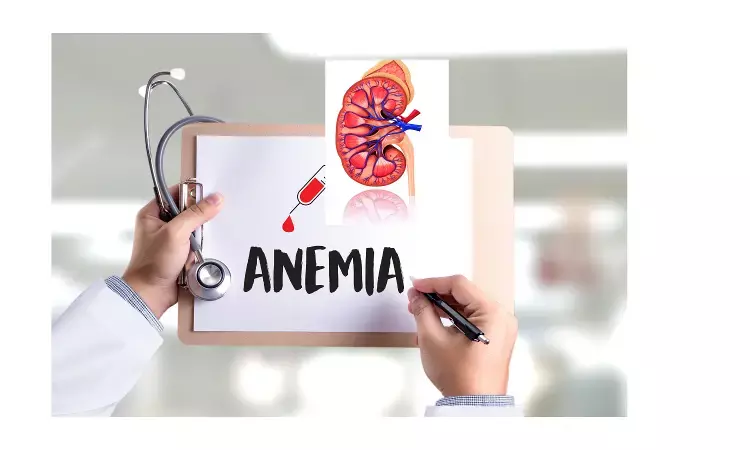- Home
- Medical news & Guidelines
- Anesthesiology
- Cardiology and CTVS
- Critical Care
- Dentistry
- Dermatology
- Diabetes and Endocrinology
- ENT
- Gastroenterology
- Medicine
- Nephrology
- Neurology
- Obstretics-Gynaecology
- Oncology
- Ophthalmology
- Orthopaedics
- Pediatrics-Neonatology
- Psychiatry
- Pulmonology
- Radiology
- Surgery
- Urology
- Laboratory Medicine
- Diet
- Nursing
- Paramedical
- Physiotherapy
- Health news
- Fact Check
- Bone Health Fact Check
- Brain Health Fact Check
- Cancer Related Fact Check
- Child Care Fact Check
- Dental and oral health fact check
- Diabetes and metabolic health fact check
- Diet and Nutrition Fact Check
- Eye and ENT Care Fact Check
- Fitness fact check
- Gut health fact check
- Heart health fact check
- Kidney health fact check
- Medical education fact check
- Men's health fact check
- Respiratory fact check
- Skin and hair care fact check
- Vaccine and Immunization fact check
- Women's health fact check
- AYUSH
- State News
- Andaman and Nicobar Islands
- Andhra Pradesh
- Arunachal Pradesh
- Assam
- Bihar
- Chandigarh
- Chattisgarh
- Dadra and Nagar Haveli
- Daman and Diu
- Delhi
- Goa
- Gujarat
- Haryana
- Himachal Pradesh
- Jammu & Kashmir
- Jharkhand
- Karnataka
- Kerala
- Ladakh
- Lakshadweep
- Madhya Pradesh
- Maharashtra
- Manipur
- Meghalaya
- Mizoram
- Nagaland
- Odisha
- Puducherry
- Punjab
- Rajasthan
- Sikkim
- Tamil Nadu
- Telangana
- Tripura
- Uttar Pradesh
- Uttrakhand
- West Bengal
- Medical Education
- Industry
Anemia, AF and hyperuricemia identified as risk factors for new onset CKD: Study

Diabetes and cardiovascular diseases are most common causes of onset of kidney disease.
Various risk factors have been identified for the new onset or rapid deterioration of chronic kidney disease (CKD). A new study by Tomohiro Kaneko and team reported that other factors like anemia and hyperuricemia were identified as risk factors for new-onset CKD over a short period of time.
This study is published in Clinical Kidney Journal.
The objective of the study was to evaluate various risk factors that caused onset of chronic kidney disease.
The study was based on the results of specific annual health checkups at Tama City (n = 18 383) in 2017 and 2018, we analyzed the factors that cause new-onset CKD and the risk factors that rapidly worsen renal function. For new-onset CKD, proteinuria and estimated glomerular filtration rate (eGFR) <60 mL/min/1.73 m2 were examined separately. Rapid deterioration of renal function was defined as an eGFR ≥25% less than the previous year.
The results of the study were found to be
• Multivariate analysis showed that in addition to age and impaired glucose tolerance, anemia and atrial fibrillation (AF) were risk factors for the new appearance of proteinuria.
• Risk factors for a decrease in eGFR to <60 mL/min/1.73 m2 were age and hyperuricemia.
• Age, systolic hypertension, urinary protein and urinary occult blood, high triglycerides and anemia were significant risk factors for the rapid deterioration of renal function in patients with CKD Stage ≥3.
Kaneko and team concluded that "From the results of specific annual health checkups at Tama City, AF, anemia and hyperuricemia were identified as risk factors for new-onset CKD over a short period of 1 year. Anemia was also a factor for the rapid deterioration of kidney function in subjects with renal dysfunction."
Therefore treatment for anemia and AF may be useful in reducing the development and progression of CKD.
For further information: https://academic.oup.com/ckj/article/14/10/2221/6118195
Medical Dialogues consists of a team of passionate medical/scientific writers, led by doctors and healthcare researchers. Our team efforts to bring you updated and timely news about the important happenings of the medical and healthcare sector. Our editorial team can be reached at editorial@medicaldialogues.in.
Dr Kamal Kant Kohli-MBBS, DTCD- a chest specialist with more than 30 years of practice and a flair for writing clinical articles, Dr Kamal Kant Kohli joined Medical Dialogues as a Chief Editor of Medical News. Besides writing articles, as an editor, he proofreads and verifies all the medical content published on Medical Dialogues including those coming from journals, studies,medical conferences,guidelines etc. Email: drkohli@medicaldialogues.in. Contact no. 011-43720751


